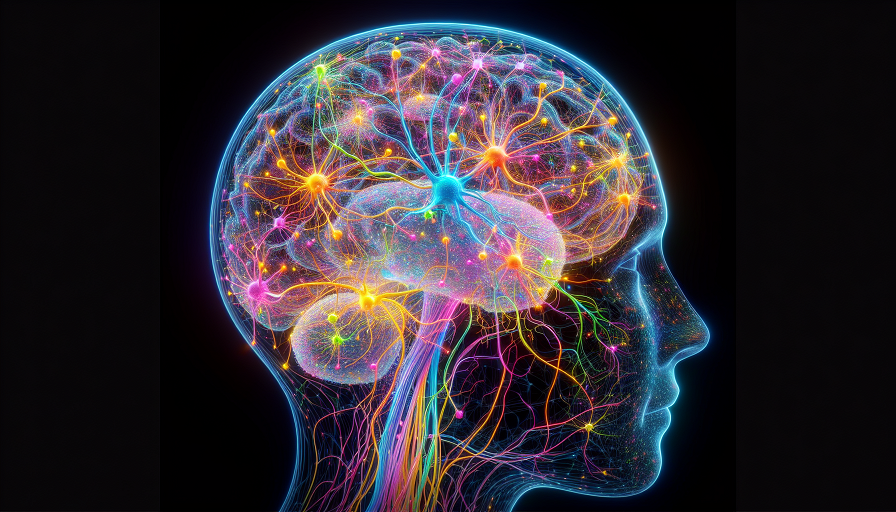
Yes, reading fiction can improve theory of mind skills by exercising the brain’s ability to understand others’ thoughts, beliefs, and emotions. Immersing yourself in stories requires perspective-taking, empathy, and mental modeling, all of which strengthen social cognition.
Contents
- What Is Theory of Mind?
- How Fiction Stimulates the Social Brain
- Evidence from Research
- Why Fiction Works Better Than Nonfiction
- Genres and Their ToM Benefits
- Practical Benefits of Strengthened ToM
- Psychological and Educational Implications
- Limitations and Considerations
- How to Use Fiction to Strengthen Theory of Mind
- The Bottom Line
What Is Theory of Mind?
Theory of mind (ToM) is the ability to attribute mental states – such as beliefs, desires, and emotions – to oneself and others. It enables us to predict behavior, interpret intentions, and navigate social interactions. Strong ToM skills are essential for empathy, cooperation, and effective communication.
How Fiction Stimulates the Social Brain
Reading fiction is more than entertainment – it is a form of cognitive simulation. When we follow characters through conflicts and relationships, the brain engages networks used for real-life social reasoning. This includes:
- Medial prefrontal cortex: Processes self and other-related thoughts.
- Temporoparietal junction: Interprets others’ intentions.
- Anterior cingulate cortex: Regulates empathy and emotional response.
- Mirror neuron systems: Activate when imagining others’ actions or feelings.
Evidence from Research
- A 2013 study in Science showed that reading literary fiction temporarily enhanced ToM performance on social reasoning tests.
- Neuroscientists have found overlapping brain activation between imagining fictional characters’ mental states and understanding real people’s perspectives.
- Children exposed to more narrative fiction score higher on empathy and perspective-taking measures.
- Adults who regularly read fiction demonstrate stronger social cognition compared to non-readers.
Why Fiction Works Better Than Nonfiction
While nonfiction informs, fiction immerses. Stories require readers to:
- Infer motivations: Characters’ inner lives are not always directly stated, requiring imagination.
- Hold multiple perspectives: Complex narratives often present conflicting viewpoints.
- Experience emotions: Emotional engagement deepens memory and empathy.
- Resolve ambiguity: Unlike facts, stories demand interpretation, which sharpens ToM skills.
Genres and Their ToM Benefits
- Literary fiction: Rich character development and subtle emotions most strongly engage ToM.
- Drama: Complex social conflicts encourage perspective-taking.
- Mystery novels: Require inferring motives and hidden intentions.
- Fantasy and science fiction: Expand imagination by modeling unfamiliar social systems and moral dilemmas.
Practical Benefits of Strengthened ToM
- Improved empathy: Recognizing others’ emotions enhances relationships.
- Better communication: Anticipating misunderstandings leads to clearer dialogue.
- Conflict resolution: Understanding perspectives helps defuse disputes.
- Cultural sensitivity: Fiction exposes readers to diverse worldviews and experiences.
Psychological and Educational Implications
- For children: Early exposure to stories fosters empathy development and cooperation skills.
- For adults: Reading fiction serves as ongoing “social practice,” especially beneficial in complex workplaces.
- For clinical populations: Fiction-based therapies have been explored to support individuals with autism spectrum disorders in strengthening ToM.
Limitations and Considerations
- Not all fiction has the same effect – formulaic or shallow narratives may not challenge ToM.
- Benefits depend on depth of engagement; passive reading may not stimulate empathy strongly.
- Some studies show short-term improvements, while long-term effects may require consistent reading habits.
How to Use Fiction to Strengthen Theory of Mind
- Read a variety of genres with complex characters.
- Reflect on characters’ motives, even when unstated.
- Discuss stories with others to compare interpretations.
- Engage emotionally with narratives instead of skimming for plot alone.
The Bottom Line
Reading fiction improves theory of mind skills by immersing readers in diverse perspectives, emotions, and motivations. Regular engagement with stories strengthens empathy, social reasoning, and communication, making fiction a powerful tool for cognitive and emotional growth.

